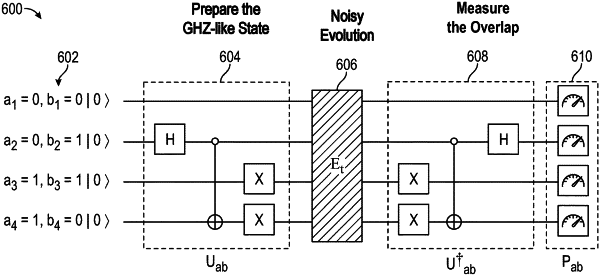| CPC G06N 10/70 (2022.01) | 17 Claims |

|
1. A computer-implemented method for detecting a two-qubit correlated dephasing error, the method comprising:
accessing a signal of a quantum device, the quantum device including a plurality of qubits, wherein every qubit has a nonzero rate of dephasing, wherein some qubits have a nonzero rate of correlated dephasing, wherein the signal includes information about a matrix, the matrix including diagonal elements and off-diagonal elements, and wherein the off-diagonal elements of the matrix are 2s-sparse;
performing randomized measurements of the off-diagonal elements of the matrix by preparing entangled Greenberger-Horne-Zeilinger states (GHZ states) on random subsets of the plurality of qubits;
recovering the matrix based on a direct measurement of the diagonal elements of the matrix; and
estimating a two-qubit correlated dephasing error based on the recovered matrix.
|